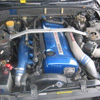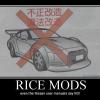Genuine Nissan 7.5w30 engine oil
Announcements
-
Similar Content
-
Latest Posts
-
I haven’t taken them out of the cases yet inside the box is this packaging which is pretty much like a massive blister pack
-
Purchased a NC MX5 a while ago Basic suspension mods done, BC coils and Whiteline sway bars New DBA calipers, discs and pads Added some 17 x 8 Konig Decagrams with 215/45 17 PS5's Added some typical NA bolt on's, i.e. full exhaust and intake Added 0.5ltrs with a MZR2.5 swap, nice bump in torques Found a detachable hard top which is locked in for a colour match with my local paint shop in Feb 25, this also includes some PDR as it has received a few love taps from parking in the local shops when in the hands of my Minister for War and Finances, me, I park nowhere near other cars and typically park on the street The little thing is awesome, I drive it everywhere, it handles like a dream whether I'm up it or just cruising But now, because I'm a idiot, I keep looking at turbo kits....... did I mention I'm a idiot Why is dose so appealing All of the NA 2.5 glory, well.......until sometime in 2025 anyway....🤪
-
By Murray_Calavera · Posted
I would not be surprised if you are the only person on earth that has the interest/desire to do that lol. The Haltech base map is a really good starting point, the car will fire easily and drive very well, even on mild boost levels. To me, following your advice sounds like some sort of ancient Chinese water torcher lol (this is not an insult Josh, never change <3) -
Those car show concepts from the 2000's and 2010's like the Floria and IDx were brilliant and should've gone ahead, at least one of them. But neither Honda nor Nissan are thinking about affordable performance any more, which is truly sad. Even if Toyota's liquid hydrogen ICE development reaches the point where it's commercially viable and the infrastructure to support it, Honda/Nissan would have to wait until Toyota allow fee access to their patents to offer it with any smaller performance models they released to take advantage of it.
-
A sporty manual RWD coupe with a IL4 Honda engine would only be a good thing I assume we won't see anything released for a few years though, unless informal talks and designs have been going on for a few years, and due to the current, and future, emmisions and safety requirements, I assume anything "sporty" they would do would be at least some hybrid thingie And hopefully anything they are thinking of has nice lines, without lots of plastic and fake bits hanging off it like that horrendous FK8 that looked like it was designed by a 13 year old The other issue of course in the current market is cost, currently the type R is around $70k, a twin is around $50k Meh, I'm old and grumpy and would rather buy a older model car and waste my coin on that than buying anything currently available new
-






Recommended Posts
Create an account or sign in to comment
You need to be a member in order to leave a comment
Create an account
Sign up for a new account in our community. It's easy!
Register a new accountSign in
Already have an account? Sign in here.
Sign In Now